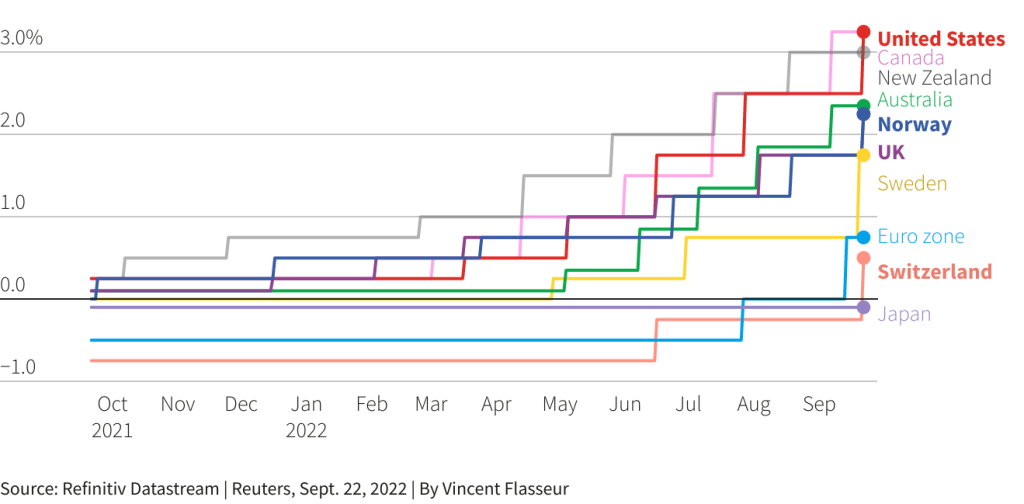- Investors are worried the Fed will send the US economy into a recession.
- Top central banks worldwide have raised rates, increasing global recession worries.
- The fiscal policy situation in the UK is creating a risk-off market environment.
Fears over the Federal Reserve’s incredibly aggressive policy tightening caused major equity futures index prices, including the E-mini S&P 500 (ES), to drop to their lowest point in almost two years on Tuesday.
Futures have been under pressure since late August, when the US Federal Reserve made statements and took bold measures that indicated the central bank’s top objective is to stamp out rising inflation, even at the risk of sending the economy into a recession.
“As long as the Fed continues to raise rates, and investors don’t anticipate an end of the rate hikes, I think this market is going to continue to be weak,” said Tim Ghriskey, Senior Portfolio Strategist, Ingalls & Snyder, New York.
“When you have these cascades of selling as we’ve seen since the Fed, support doesn’t matter. You can slice right through it,” said Ryan Detrick, chief market strategist at Carson Group in Omaha, Nebraska.
“Fundamentals and logic are almost thrown out the window because we are all wondering how hawkish the Fed is. You look around this week, and all these global central banks hiked rates,” Detrick said that coordinated hikes by multiple central banks left investors worried.

In the past week, central banks worldwide raised interest rates and vowed to do all it takes to combat soaring inflation, especially as the next winter in the northern hemisphere runs the risk of deepening a global energy shortage. Central banks’ policy rates overseeing the ten most traded currencies apart from the yen have gone up in the last 12 months.
A study revealed that consumer confidence grew for a consecutive month in September, while new orders for capital goods made in the United States rose more than anticipated in August. This was good news that showed the US economy is holding on despite the Federal Reserve’s vigorous tightening monetary policy to combat inflation.
But all eyes are on British markets, where sterling and government bonds are under intense pressure. The International Monetary Fund said it is “closely monitoring” developments and urged the government to rethink last week’s fiscal package. This will continue dampening risk appetite as investors flock to the safer dollar.


